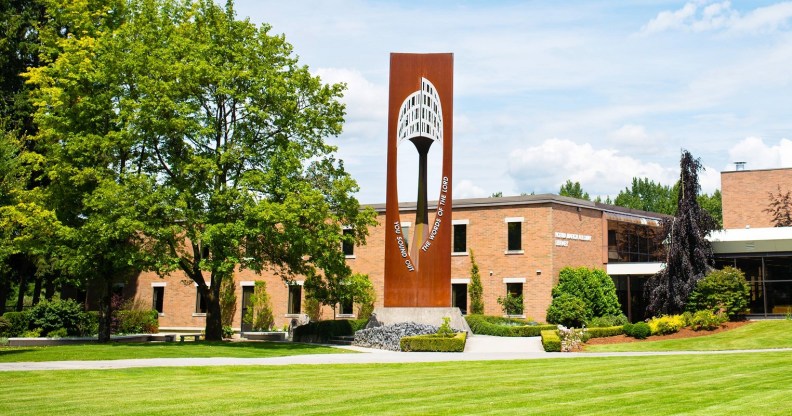Canada’s Supreme Court backs LGBT students by ruling against Christian law school that bans gay sex

TWU president Bob Kuhn said everyone was welcome at the school
Canada’s Supreme Court has backed the rights of LGBT students by ruling in favour of law societies denying accreditation to a proposed Christian law school that bans gay sex.
The country’s top court ruled 7-2 in favour of law societies refusing accreditation to the school at Trinity Western University in British Columbia, reports Canadian broadcaster CBC.
The landmark ruling is being lauded by LGBT rights activists, with the Supreme Court effectively supporting LGBT equality over religious freedom.
The school, which was first proposed by the evangelical university in 2012, would require all students to sign a pledge to abstain from “sexual intimacy that violates the sacredness of marriage between a man and a woman”, effectively banning gay students.
The university had applied for accreditation in every province in Canada – meaning that its law students could be called to the bar anywhere in the country – but Ontario, British Columbia and Nova Scotia law societies had refused to grant it that status.
The law societies’ decision to deny the law school accreditation led to a prolonged legal battle, where the university claimed their religious liberty had been infringed.
Lower courts in British Columbia and Nova Scotia had ruled in favour of the law school. But, faced with continued opposition from the British Columbia and Ontario law societies, the university took the case all the way to the Supreme Court.

Canada’s Supreme Court ruling is being praised by LGBT rights campaigners. (Getty)
However, this court – Canada’s top court – has now backed protecting LGBT students from discrimination over religious freedom.
“The (law society of British Columbia) has an overarching interest in protecting the values of equality and human rights in carrying out its functions,” the court ruled, according to the BBC.
“Approving or facilitating inequitable barriers to the profession could undermine public confidence in the (law society’s) ability to regulate in the public interest.”
In a statement, Trinity Western University said it was “disappointed” by the Supreme Court ruling.
“We feel this is a lost opportunity for Canadians, many of whom do not have affordable access to justice,” said Earl Phillips, executive director of Trinity Western University’s proposed law school.
“There are only three common law schools in Canada that offer a course in charity law. The TWU law school would have offered a specialty in charity law. Because Canada has the second largest charitable and non-profit sector in the world, this loss stands to impact Canadians coast to coast.”
“Without question, the Trinity Western community is disappointed by this ruling. However, all Canadians should be troubled by today’s decision that sets a precedent for how the courts will interpret and apply Charter rights and equality rights going forward.”
The university said the court decision “constrains” its “quest to establish a law school and offer 60 new law school seats to Canadian students.”

